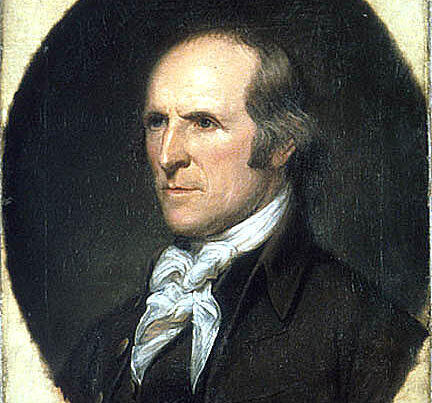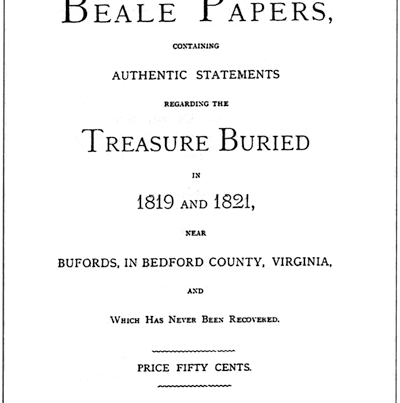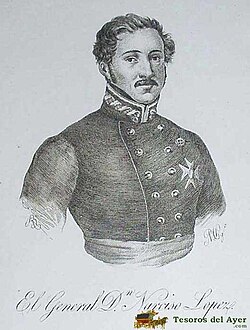
“In your hands, my dissatisfied fellow-countrymen, and not in mine, is the momentous issue of civil war. . .” Abraham Lincoln ~ First Inaugural Address
I have always believed—reasonably, I think—that Lincoln used this term before ever a shot was fired in order to apportion an equal part of the blame for the war he was prepared to initiate to stop Southern secession. After all, in a civil war, both sides engage equally in a struggle to secure power over the country involved. However, we know that certainly the States of the South had no desire to wrest political power unto themselves, thus rendering the rest of the Union subject to their control. Indeed, all that the Cotton States wished to do was leave a union that had become burdensome and detrimental to the interests of their citizens. In fact, the rest of the States that seceded did so only after Lincoln called for troops to “put down the rebellion” in the Cotton States. Virginia and other States of the upper South seceded only after they realized that they were being ordered to commit treason as defined in the Constitution in order to deprive their fellow Southerners of their God given and constitutionally protected rights.
Lincoln also realized that secession itself was not sufficient to bring the rest of the Union to the point at which they would countenance an invasion of the South and the war which must surely result from such an act. Secession was recognized as a constitutional right open to any state that so desired to utilize it. Even the issue of slavery—that admittedly played a major role in the matter—was not important enough for the ordinary Northerner to take up arms against those who had but lately been fellow Americans. And, of course, this is why the false flag of Fort Sumter became necessary. So, given the above, why do I now believe that Lincoln was right when he called what followed a “civil war?”
In order to understand how I came to this conclusion, one must recall one of those mind tricks so popular not too many years ago. One was shown a rectangular piece of white paper and was asked to read what was written upon it. The paper contained a number of oddly shaped and placed black marks which were totally devoid of any resemblance to letters. As these shapes didn’t make up words, it seemed impossible to answer the question posited by the person playing the game. Some people never “got it” until it was explained to them! But others started to look at the paper from a different perspective and soon discovered that there were words—but the words were not the black marks! Rather, they were what originally appeared to be only the white background, the black marks serving to give shape to the white letters. The point is that until one looked at the piece of paper from an entirely different perspective, one could not answer the question. This happened to me in the matter of Lincoln’s “civil war.” I began—as the readers of the paper did—with a preconceived understanding of the situation. The South wanted to leave “the union” and Lincoln had no intention of allowing them to do so.
First, the assumption was that he needed the revenues provided by the Cotton States—and he did. He is even quoted as asking what he would do for money if the Cotton States seceded since they paid over 75% of the government revenues.(*) Indeed, the entire economic foundation as a cause of the war is undeniable whether it be the tariff revenues or the threat of a new “free trade” nation existing on the same continent. But obviously, Lincoln’s method of warfare—whether it was to end slavery, an institution upon which much of Southern prosperity depended, or the waging of total war which devastated the region—was such that the South would be able to contribute little if any revenues to the federal treasury for decades after such a war’s end. As this, indeed, proved to be the case, it would seem that a simple economic motive makes no sense whatsoever! Decimating a quarter of one’s country is not a feasible strategy for economic health though the truth is that neither side believed that the war would last a year – if that long! (*From the Memoir of a Narrative Received of Colonel John B. Baldwin, of Staunton, Touching the Origin of the War, by Rev. R. L. Dabney, D. D.
“I remember,” says Mr. Stuart [A. A. H. Stuart, member of the Peace Commission sent to see Lincoln in hopes of avoiding war], “that he used this homely expression: ‘If I do that, what will become of my revenue? I might as well shut up house-keeping at once!’”)
So, if economics wasn’t the whole answer, then what was? Was it truly about slavery? No. When to prevent European and British recognition of the Confederacy—and as a possible military strategy to foster servile insurrection in the South—Lincoln issued his Emancipation Proclamation in 1862, the negative response from his own side effectively removed ending slavery as a rallying cry throughout the North. Furthermore, the “Union” States had severely limited the presence of blacks within their own borders, preventing them from immigrating into those States and often so circumscribing the behavior and rights of those relatively few who did reside there as to make of them slaves in all but name. Ending slavery in the South by effectively destroying its way of life could only mean that the millions of blacks in that section would have to seek their livelihood elsewhere—something that the rest of the Union was unwilling to permit.
As I began to ponder what was actually being contended in the War of Secession, I realized that Lincoln stood for the Hamiltonian understanding of what the United States (with a capital “U”) was supposed to be as a nation. Unlike Jefferson’s limited Republic, Hamilton and those with him wanted if not a monarchy (Washington would not permit himself to be made a king!), then the next best thing, an Empire! Lincoln did not want to lose the South only for economic reasons but also for political reasons. Empires do not cede territory as Americans had already learned in 1776 and 1812 when the colonists and later Americans engaged the British Empire over their independence. Empires acquire territory either peacefully—as with Jefferson’s Louisiana Purchase—or by the sword as in the Mexican War, a true war of empire with its own false flags. By the middle of the 19th century, America was caught up in the same heady desire for “empire building” that had engaged Europe and Britain for a century and more. A great many Americans wanted to be players on the world stage and Washington’s cautionary advice to “…avoid foreign entanglements…” had long since been forgotten.
Only in the South did the rather parochial Jeffersonian ideals of moral, economic and political restraint and personal liberty still hold sway. The majority of the people of the South wanted the original Republic while the rest of the nation had moved past those modest goals and embraced an ideal of centralized power that would eventually make the United States a very large player on the world stage. The socialist revolutionists of Europe in the 1840s were finding a home not only in America but especially in the Lincoln government, both civil and military. And while there were doubtless those in the South who embraced this new view of America, the moral, ethical and especially religious character of the Southern people rejected much of what humanist socialism and atheistic communism with its all-powerful central authority proffered as a path to the future.
The South’s reaction to what it rightfully saw as this new course, was guided by that section’s understanding of its irreconcilable nature relative to the individual liberties of each Southern man as guaranteed in the Founding documents. The new way of centralized power was an anathema to the Southern mind. Power and wealth meant little or nothing when exchanged for conformity and the abandonment of Christianity and personal freedom. The South could not—and, more importantly, would not—adopt the path that the rest of the nation had embarked upon and the only course left open to it (even if many did not truly understand the matter in this light) was to leave and, in so doing, maintain the original founding principles—that is, a limited Republic.
So, in effect, the Confederate States of America was not a new nation, but was, in fact, the original nation brought forth in 1776. Yes, there was a new nation, but that nation was the remnant which now wished to follow a very different path from that begun in 1776 and defined in 1789. This new nation retained the name of the old republic—which is what caused all the confusion in the first place—but, in fact, had over time, metamorphosed into an empire with all that that implies. Thus, when the South attempted to leave this empire that it did not support and re-establish the old republic, that faction that supported the empire waged war to maintain its borders and citizenry intact.
Thus, in effect, you did have two factions waging war to gain control of a nation. The only difference here is that the people of the South were not fighting to bring the rest of the Union back to the Founders’ Republic, but rather to escape a situation they could neither prevent nor even influence. They were willing to permit their fellow “Americans” to have their empire, but they wanted to be left alone to have their republic! Of course, that could not be permitted. As previously noted, empires do not cede territory neither do they permit the existence of economic or political competition, especially in close geographical proximity. Remember, the United States had still not accepted a British presence on its northern border and after the war, weapons were sold to Irish patriots by the U. S. military for an invasion of Canada as a means of gaining the freedom of Ireland from the grip of Great Britain. The United States didn’t support that invasion, but had it been successful they would certainly have attempted to gain more territory at the expense of both the Irish and the British.
So, in the end, Lincoln’s point was well made. It would be a civil war. Two factions would fight for control of a nation—or rather one faction would fight to preserve a nation—albeit within a smaller geographical setting—while the other faction would fight to overthrow that original nation, regain what it considered “lost” territory and establish an empire all of which did indeed happen as our present circumstances make so painfully clear. The confusion arises, I believe, because the new “national-no-longer-federal-government” was permitted to use without correction by either side, the claims and promises directly attributed to the nation’s founding even when those claims and promises were not just abandoned, but openly rejected.
Certainly, most of the Bill of Rights—not to mention a large part of the Constitution itself—was forsaken by Lincoln’s government and military never to be reassumed. No rational claim can be made by those who approve and applaud the actions of “the Federal Union” that there was any constitutional legality involved in its actions or that the results obtained were either legal or moral. All that occurred is defended with the notion that he who prevails militarily is in the right. That is, of course, moral, ethical and philosophical—not to mention historical—nonsense.
The American Civil War was far worse than most such conflicts. Whatever the changes were wrought when Cromwell supplanted Charles I, England remained England. We know this because not too many years later Charles II was restored to his father’s throne without so much as a hiccup in the life of most Englishmen. Such was not the case in the American struggle. Not only were a people and their culture purged from what remained of the political and social entity that once was the United States of America, but the nation of the Founding Fathers was laid waste, discarded and effectively destroyed. Its remnants can be seen in photographs of desolated Southern cities and the rotting corpses of those Americans who died—alas in vain—to protect and preserve it; that is, the soldiers in gray.






As a daughter of the South I want to thank you for this gem. I have always held that Lincoln was more interested in empire building than preserving the Union for the sake of the Union. I have read about how he trampled the Constitution and Bill of Rights while waging a “burnt earth” war of attrition. He destroyed the culture of the nation when he ordered a war on the women and children, black and white, of the South. I thank you for your scholarly treatment of the true nature of this uncivil war.